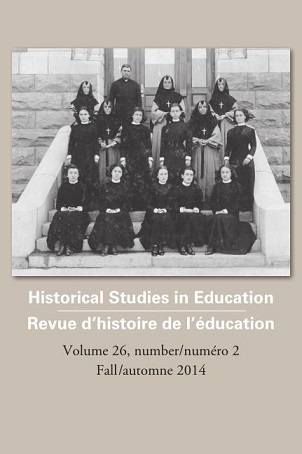Abstract
Abstract
This essay explores H.G. Wells’s attempts to reform the teaching of history between the two World Wars. Holding history teachers largely responsible for creating the mood of bellicose nationalism that made the First World War possible, Wells concluded that only a fundamentally reformed history education would ensure the survival of the human species. He pressed for a global history, to be taught in all the world’s schools, that began with the origins of the universe and ended with the present and a glimpse into the future that transcended national borders, and would be taught appropriately. Wells was widely read and often quoted by teachers but was unable to change the priorities of educational policy-makers. This essay examines his objections to conventional history; explores his alternative model of history education; and explains his eventual failure. Wells made an important contribution to the debate about history teaching in the inter-war years and his educational ideas have been unduly neglected.Résumé
Cet article expose les tentatives de l’écrivain H. G. Wells en vue de réformer l’enseignement de l’histoire entre les deux guerres mondiales. Il tenait les professeurs d’histoire responsables du climat de nationalisme belliqueux qui avait rendu possible la guerre de 1914-1918. Wells était arrivé à la conclusion que seule une réforme en profondeur de l’enseignement de l’histoire pouvait assurer la survivance de l’espèce humaine. Il préconisait une histoire universelle, enseignée dans toutes les écoles du monde, qui commencerait avec les origines de l’univers et qui se terminerait avec le présent et un aperçu du futur qui transcenderait les frontières nationales. Cette histoire se devait d’être enseignée adéquatement. Beaucoup lu et souvent cité par des enseignants, néanmoins Wells n’a pas réussi à influencer les orientations des programmes. Cet article examine sa critique de l’enseignement conventionnel de l’histoire, explore son modèle alternatif et explique son échec éventuel. La contribution importante de Wells au débat sur l’enseignement en histoire durant l’entre-deux-guerres et ses idées éducationnelles ont été par trop négligées.
